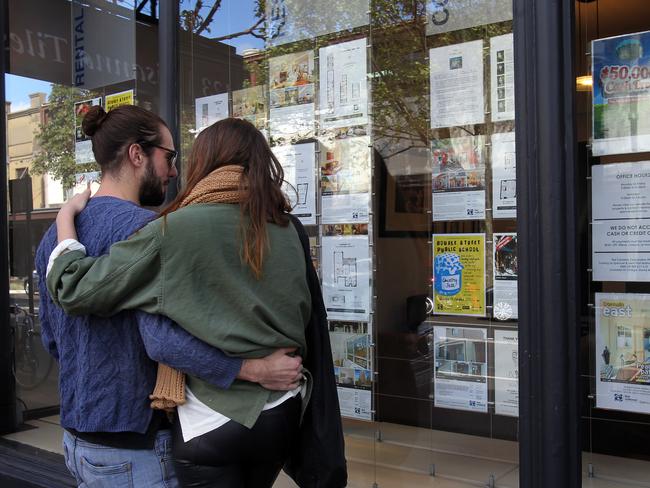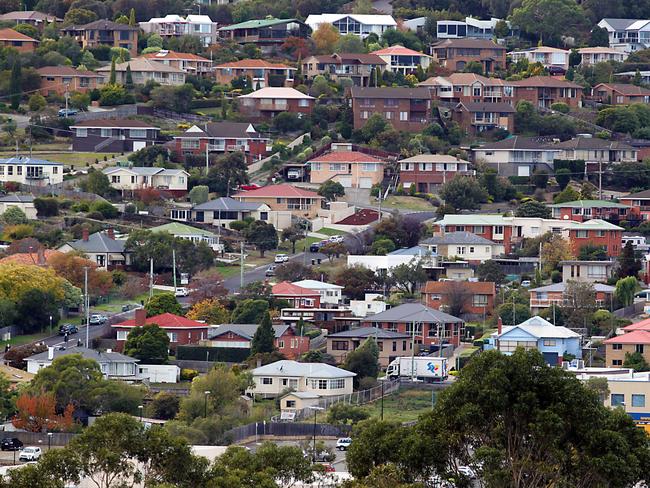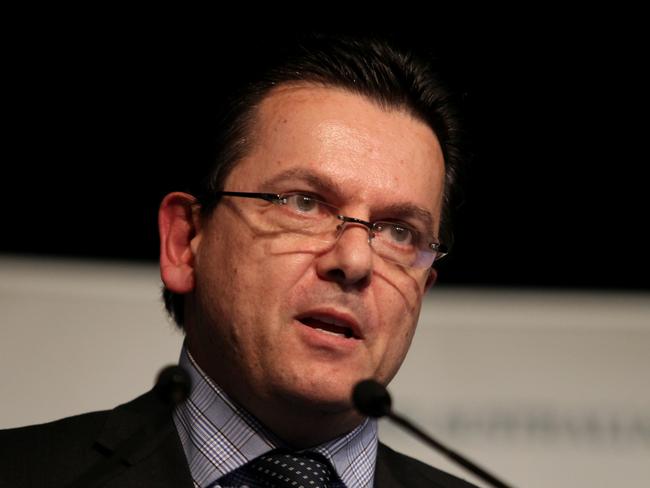How this super idea could move you out of Struggle St
YOUNG Aussies tell us what they really think about a controversial new idea to make buying your first home easier.
IF YOU’RE struggling to save up for your first home, you’re not alone.
Home ownership among 25- to 34-year-olds has dropped to less than half (47 per cent) when compared to two thirds (61 per cent) three decades ago, according to census data.
With prices skyrocketing and limited housing stock to drive prices down, the prospect of home ownership is slipping out of reach for many younger Australians.
But a controversial idea has been floated that could restore our faith in the Great Australian Dream.
Independent South Australian senator Nick Xenophon is advocating for Australia to allow people to dip into their superannuation funds to buy their first home.
Senator Xenophon told news.com.au that the idea had merit and deserved “to be looked at”.
“I hope to trigger a debate about housing affordability,” he said.
“While pollies are busy squabbling about other things, this is an issue that affects people’s lives.
“(Former prime minister) John Howard used to talk about barbecue stoppers, and this is the absolute barbecue stopper — because this is something parents and young people are worried about.”
RELATED: Families priced out of the cities moving to the regions

Senator Xenophon wants Australia to explore adopting a scheme similar to Canada’s Home Buyers’ Plan, which allows residents to withdraw funds up to $25,000 in a year from their retirement savings to buy or build a home.
The Canadian scheme has been operating for 22 years with about one eighth of first home buyers aged 25 to 44 participating.
Generally, withdrawals have to be paid back into the retirement funds within 15 years.
Similar schemes have also been successful in Singapore and New Zealand.
Queensland Nationals Senator Matthew Canavan has thrown his support behind the concept.
“The hardest thing you have to do in this nation is save up for a deposit. (Superannuation) is your money and it’s meant to be for your future, but you can’t save it for your own home,” he told news.com.au.
“Home ownership is falling for the first time since the war.
“But if you own your own home, you are a much, much lower drain on the public purse because you don’t have to pay rent.”
THE PROSPECTIVE FIRST HOME BUYER

Melbourne builder James Durance, 22, said he and his girlfriend were struggling to save up for a deposit to buy their first home and this type of scheme would help them greatly.
“I’m all for it. Sign me up,” he laughed.
He said the beauty of the scheme was that the money withdrawn from your super would be “tied up into an asset”.
“I can only see it as a benefit. Unlike cars or particularly anything you own, it’s that one thing that’s always going to be of value, so it can only be an asset. Put it this way, you can’t drive a house out of the showroom,” he said.
Mr Durance doubted that the scheme would artificially inflate house prices, because it would only be open to Aussie first home buyers.
SO IS IT A GOOD IDEA?

Critics of the concept say the key to improving housing affordability is increasing supply and removing regulations surrounding planning, land use and infrastructure.
Finance Minister Mathias Cormann said the government did not support the idea.
“Increasing the amount of money going into real estate by facilitating access to super savings pre-retirement will not improve housing affordability,” Mr Cormann told news.com.au.
“It would increase demand for housing and, all other things being equal, would actually drive up house prices by more. That is, it would reduce housing affordability, including for first home buyers.
“The only effective way to tackle housing affordability is by boosting housing supply, not by boosting demand.”
The superannuation industry is also critical, with the Association of Superannuation Funds of Australia saying Australia’s compulsory contribution rate was not high enough to enable this policy.
“Most individuals do not have sufficient leeway in their retirement savings to finance a housing purchase without seriously compromising their eventual retirement income,” a spokesperson said.
They said more than 50 per cent of participants in the Canadian scheme failed to repay the amount withdrawn in full or, in some cases, even in part.
“This has a drastic impact on their final pension balance at retirement,” the spokesperson said.
HOW WOULD IT WORK?

Senator Xenophon said he welcomed feedback on the idea.
“I’m very happy for the idea to be subject to a blow torch and scrutiny, because we will get a better result,” he said.
“It can be very closely monitored. We can learn from the mistakes of the Canadian scheme.
“It doesn’t have to be all or nothing. I think we really need to think differently about getting more people into home ownership.”
Senator Xenophon said the scheme could work if there were appropriate checks and limits in place, such as:
● Ensuring capital gains made on properties were paid back into the homeowner’s super fund
● Placing a time limit on when the money withdrawn must be paid back
● “Gently and carefully” reeling back negative gearing rules for existing homes
● Changing planning laws to prevent state governments from “locking up land”.
“Super is not a magic bullet (but) it will increase affordability,” Senator Xenophon said.
“I’ve had a lot of criticism; I actually welcome that because we are talking about housing affordability, which we haven’t done for some time.”
He said opinion was split among voters.
“It seems to be in thirds: one third is heavily in favour, one third is heavily against, and one third don’t want it limited to just first homeowners,” he said.
“People need to have an open mind. One of the best forms of super in your retirement is to own your home and have it paid for.”
A Senate committee is investigating the issue of housing affordability, and it is due to hand down its findings on November 27.
Do you support the idea? Would you use it? Would it work? Comment below or join the conversation on Twitter @newscomauHQ.



